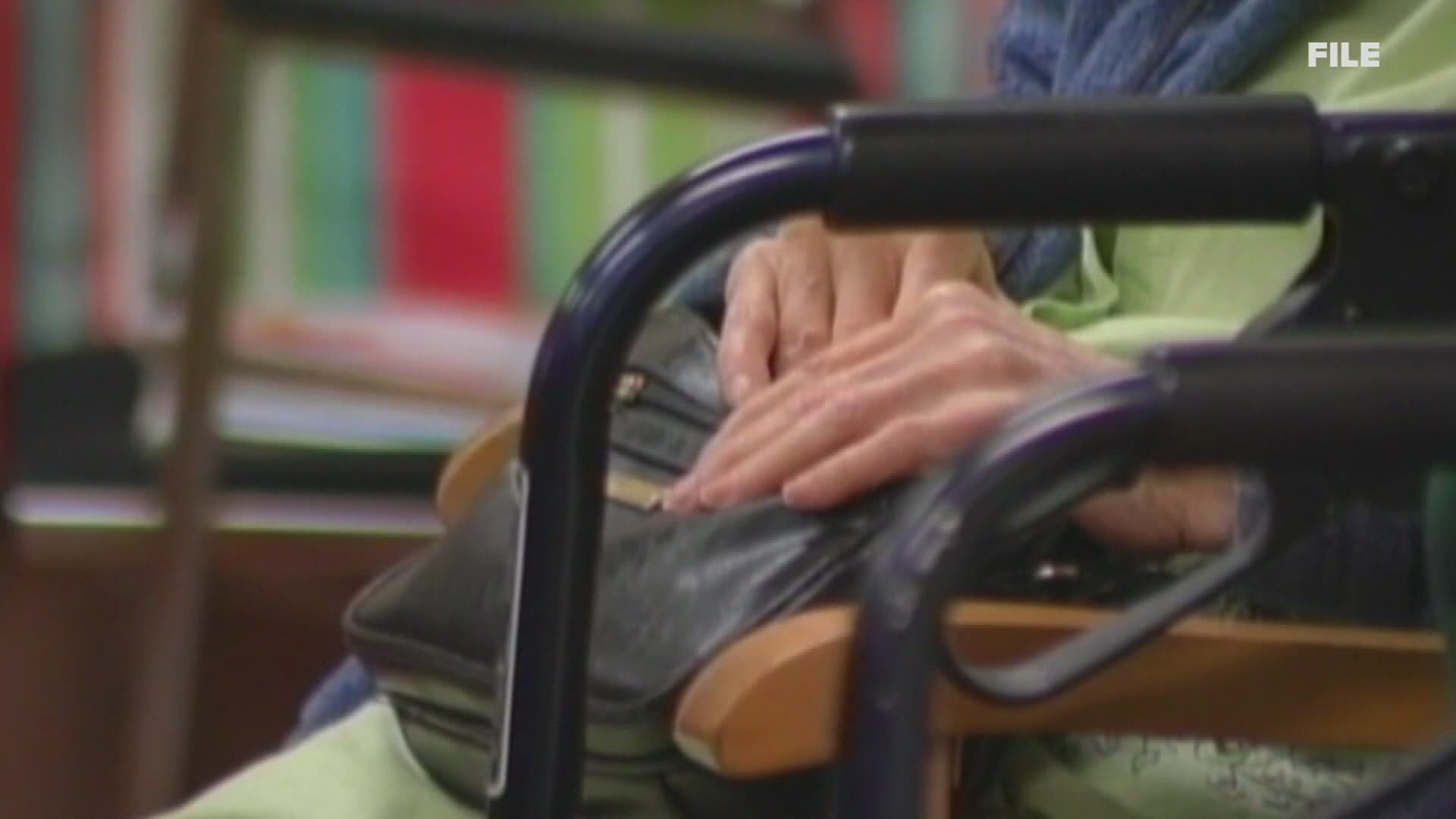MAINE, USA — Most of us don't remember a time ever before being advised to live our lives six feet apart from everyone. In the era of COVID-19 social distancing, connecting with others in the same way we used to has become more challenging -- especially for older adults.
Recent findings from the National Academies of Sciences, Engineering, and Medicine (NAP) indicate about a quarter of Americans 65 or older are considered socially isolated -- and more than 40 percent aged 60 or older say they are lonely.
The coronavirus pandemic has highlighted this issue. Beverly Kelly is 84 years old and lives in Brunswick. She says the pandemic hasn't changed her life too much -- mainly, she just misses her family and giving loved ones the occasional hug.
"It's what gives our life meaning. I mean, friends, family -- we need human interaction," Kelly expressed to NEWS CENTER Maine.
80-year-old Eleanor Rennie lives down road with her husband, Richard. They've had each other (and, recently, golf) to pass the time -- but Rennie says it's been important to her to check on neighbors and stay connected via the phone.
"I think you have to reach out to other people," Rennie advised. "Otherwise, you just get so isolated that it's not the way life is supposed to be."
Prolonged social isolation and loneliness have been found to have adverse health impacts, comparable to smoking 15 cigarettes a day. It's why Sens. Susan Collins (R-ME) and Bob Casey (D-PA), Chairman and Ranking Member of the Senate Aging Committee, held a hearing Thursday, June 11 to discuss this serious issue.
"If seniors are isolated for a long time and don't have human contact, they tend to develop serious health problems," Sen. Collins told NEWS CENTER Maine via Zoom. Those problems can include an increased risk of stroke, heart disease, Alzheimer’s disease, other kinds of dementia, and depression.
Information from that NAP report adds: "Over four decades of research has produced robust evidence that lacking social connection -- and in particular, scoring high on measures of social isolation -- is associated with a significantly increased risk for early death from all causes."
Signs that you may be socially isolated including feeling sad, withdrawn, bored, or unhappy; not enjoying your life; and not feeling well.
Senator Collins says COVID-19 is "worsening the health conditions that are caused by prolonged isolation," adding that seniors should reach out if they're are experiencing any of those signs.
She noted, though, that Mainers are resilient and pretty self-reliant, so that can be hard to do. That's why family members and friends should take action to reach out and stay connected, by calling or doing socially-distanced visits with masks.
"I think people just have to realize that it's the time you should be really good to other people (who) sometimes you just take for granted," Rennie expressed.
RELATED: Mother taught 'help your fellow man', now 89-year-old Mainer pays it forward by making masks
The research findings provided solutions to address social isolation. Those include:
- Developing a more robust evidence base for the assessment, prevention, and intervention for social isolation
- Translating current research into health care practices
- Improving awareness of the health and medical impacts of social isolation and loneliness across the healthcare workforce and in the public
- Strengthening ongoing education and training about social isolation and loneliness
- Strengthening ties between the health care system and community-based networks and resources

